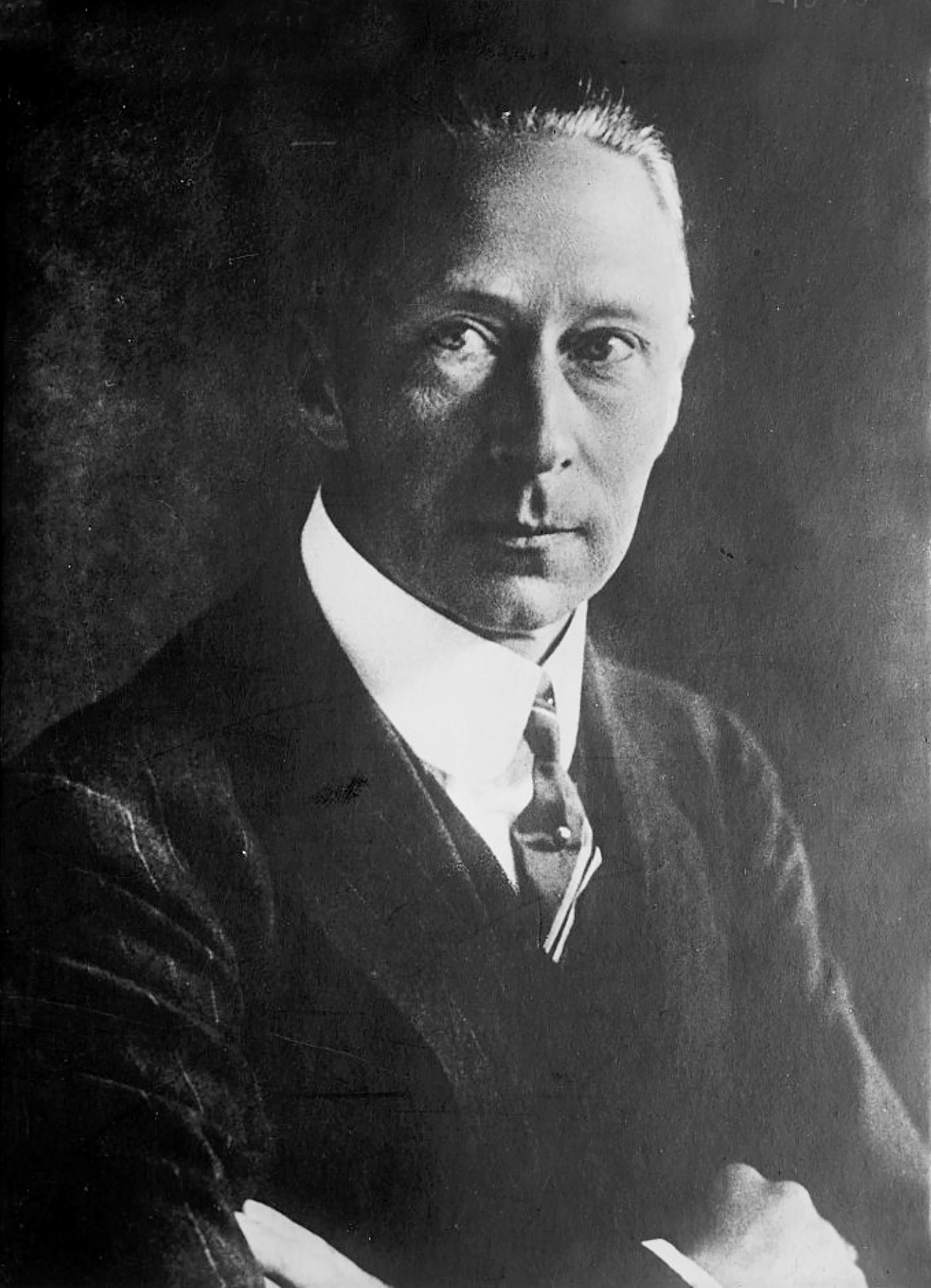In response to:
What Do the Hohenzollerns Deserve? from the March 26, 2020 issue
To the Editors:
On the substantive issues relating to the current Hohenzollern restitution debate, my former Cambridge colleague David Motadel and I are largely in agreement. Neither of us wants to see castles and parklands disappear from public ownership into the hands of the former reigning family. But I must object to his glib misrepresentations of my role in this dispute [“What Do the Hohenzollerns Deserve?,” NYR, March 26]. The report I wrote on the political comportment of “Crown Prince” Wilhelm early in 2011 did not provide “clear endorsement of the Hohenzollern claims” on which this controversy centers, and neither could it have done, because these claims did not exist when the report was written. I have never supported these claims and I do not do so now.
My report of 2011 described “Crown Prince” Wilhelm as a man of violent ultra-rightist temperament who repeatedly called for a “final reckoning” with the German left, sympathized with Hitler, offered to help him into power, wrote publicly in his support, claimed to have won him two million extra votes with just one newspaper article, and, after the seizure of power, appeared at ceremonies designed to project the identity of the new regime. However, I concluded that the “crown prince,” though willing to help the Nazis and convinced that he had, was in fact too marginal to the centers of real political power to make a “substantial contribution” to the installment of Hitler as chancellor. His appalling personal reputation, his silliness and low intelligence, his lack of any formal office from which to exert political traction, and his isolation, even from the monarchist networks that might have been expected to support him, meant that he was in a poor position to contribute significantly to the disaster that befell Germany in 1933. He was among those many senior conservatives who lent a helping hand, but he was not within the first or even the second or third circle of Hitler’s many conservative helpers.
This finding did not fly, as Motadel claims, in the face of a historiographical consensus that had been established “for decades.” On the contrary, it corresponded precisely with the consensus expressed in the most recent literature on the seizure of power, in which the deposed prince appeared, notwithstanding his Nazi sympathies, as a marginal figure, a “parade-pony” who lacked his “own ideas, will, or leadership qualities” (in the words of Lothar Machtan). Even Stephan Malinowski, the leading expert on this question worldwide, initially agreed with my assessment. His remarkable study on the German aristocracy and the Nazis, Vom König zum Führer (2003), thronged with aristocratic collaborators but left the Hohenzollern prince on the margins. Since then, the picture has changed. Through painstaking research over the last few years, Malinowski has unearthed a plethora of new sources showing beyond doubt that the crown prince, though never a collaborator of the first rank, was a more proactive supporter of the Nazis than we thought.
Motadel describes me as a “hero to the German conservative right” who throughout his career has catered to the darkest instincts of German nationalists. No historian can control how arguments are politically construed by readers, of course, but the claim that my German ones are all conservative nationalists is laughable, and I have publicly disassociated myself from the machinations of the Hohenzollern lawyers. What Motadel’s account misses, oddly enough, is the history of the case, which has evolved since 2011 in unpredictable ways.
Christopher Clark
Regius Professor of History
University of Cambridge
Cambridge, England
To the Editors:
My late grandfather Salman Schocken was the owner of a department store chain in Germany known as Kaufhaus Schocken, which was confiscated by the Nazis in 1938. Four German banks—the most important ones in Germany—appointed directors to the board to replace the Jewish owner-directors. They confiscated the company’s shares and then sold them to the public. The majority of these shares were bought by the Hohenzollern family, one can assume at a most convenient price.
The Schocken department store chain was the fourth-largest in Germany at the time. Everyone knew that it belonged to a Jewish family, just like the other main department store chains (the Hermann Tietz chain, later called Hertie, the Leonhard Tietz chain, later called Kaufhof, and Wertheim). After the war there were talks between the representative of the Hohenzollern family, Graf Hardenberg, and my grandfather’s lawyers about the return of these shares. Finally in 1949 my grandfather succeeded in getting back only 51 percent of his old company, which after the war was in very bad shape compared to when the Nazis came to power.
Therefore even according to this example of their behavior, the Hohenzollern family’s attempt to clear its name from the Nazi crimes has no foundation.
Advertisement
Racheli Edelman
Schocken Publishing House
Tel Aviv, Israel
David Motadel replies:
Christopher Clark writes that he does not support the restitution and compensation claims of the Hohenzollern family. I am sure that many in Germany will welcome this statement. There are, however, a few points in his letter that require a response.
First, Clark says that the report that he wrote for the House of Hohenzollern in 2011 on the family’s relations with the Nazis did not endorse their claims for restitution and compensation because those claims did not exist at that time. In fact, the first negotiations about the claims had already taken place in the 1990s. According to the Hohenzollern family’s official website, in 2014 the claims, “after more than twenty years of assessment,” were briefly considered valid by the state, “also with reference to Professor Christopher Clark’s report,” before they were challenged again.
The Hohenzollern family insists that “Crown Prince” Wilhelm did not lend any significant support to the Nazi movement. In his report, Clark clearly endorses this argument when he concludes that Wilhelm was politically not important enough to have done so. For many years now his report has been used by the Hohenzollern family in their negotiations with the state. It has been discussed (and criticized) as an argument in favor of their case in the German press and parliament.
Second, Clark says that at the time he wrote his report, the historical consensus was that the crown prince’s support for the Nazis was unimportant. But Malinowski’s Vom König zum Führer mentions the “early, clear and intensive support for National Socialism” of two members of the Hohenzollern family, and concludes that support for Hitler lent by a third, “Crown Prince” Wilhelm, was “of historical importance.” Moreover, the fundamental facts regarding the “crown prince,” some of which I laid out at the beginning of my article, have been known for decades. Among the early biographical works are Paul Herre’s Kronprinz Wilhelm: Seine Rolle in der deutschen Politik (1954) and Klaus Jonas’s Der Kronprinz Wilhelm (1962). One might also mention the doctoral dissertation by Friedrich Wilhelm Prinz von Preußen (an uncle of Georg Friedrich, the current head of the family), supervised by Gerhard A. Ritter and Thomas Nipperdey, on the history of the Hohenzollern family between 1918 and 1945 (1983; published in 1985 as Das Haus Hohenzollern 1918–1945). Although biased toward the family in their conclusions, these earlier works nevertheless laid down most of the essential facts.
Finally, Clark rightly says that it would be “laughable” to claim that all his German admirers are conservative nationalists. But I never made any such claim. His books have justly been huge best sellers appreciated by a wide readership in Germany that goes far beyond conservative circles. Yet it was important to point out that they have also made him a hero to the conservative right, even if involuntarily, in order to explain why the Hohenzollern family trusted him to write the report.
I was touched by Racheli Edelman’s letter. A recent report in Der Spiegel described a similar case in which the Hohenzollern family profited from the Nazi persecution of the Jews: the exiled emperor Wilhelm II, through his connections in the corporate world, enriched himself by buying up shares of companies owned by the Jewish textile magnate Walter Wolf, who was pressured into selling under market value.* Cornelia Rauh at the University of Hannover and Andreas Dornheim at the University of Bamberg are working on this subject. I hope that we will soon have a full account of this part of the Hohenzollerns’ history.
This Issue
April 9, 2020
Bigger Brother
Stuck
In the Time of Monsters
-
*
Klaus Wiegrefe, “Kumpanei mit den Nazis könnte für die Hohenzollern teuer werden,” Der Spiegel, January 24, 2020. ↩




